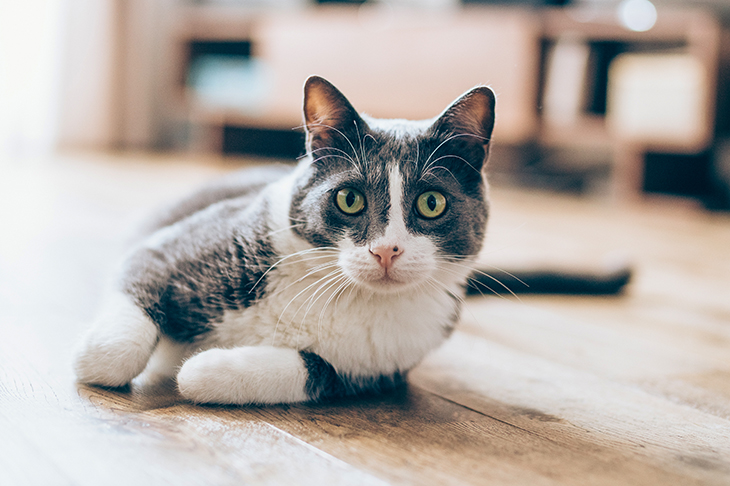Enemies on the left
Sir: James Forsyth’s article ‘Labour must change to win’ (25 January) describes how little appetite the party’s prospective leaders seem to have for arranging this change. Nonetheless, Labour remains a threat to national prosperity. The party was captured by the Trotskyists of Momentum in 2015. Trots never give up. Indeed, they regard politics as a long game. The danger is that the Conservatives have already been in government for nine years, and sooner or later all governing parties become unpopular. Momentum knows this very well and is getting ready. We ducked a bullet at the recent general election, but sensible people, of whatever political stripe, should not yet relax about Britain’s political situation. That will only be possible once either Momentum has been expelled from Labour or Labour moderates have left and set up a new centre-left party which has genuine traction.
Gregory Shenkman
London W8
Leaving the EU
Sir: Anne Applebaum (‘Letter from Strasbourg’, 25 January) notes the wistfulness of UK MEPs contemplating their departure from the European parliament. One can sympathise, as leaving employment is often a wrench, especially if one’s employment includes €70,000 per year (after tax), €4,500 for other travel expenses, €4,513 per month ‘general expenditure allowance’ (paid directly to MEPs, without need of receipts), business-class air travel, and even €353 per day just for turning up at the office. Though as one of the taxpayers funding this boondoggle, I’m more sanguine.
Peter Lucey
Wokingham, Berkshire
Remedies that hinder
Sir: Isabel Hardman is quite right about the paucity of evidence and confused opinions regarding food and mental health (‘An avocado a day’, 25 January). The danger is that people can be lured into believing that certain foods and supplements can cure, and substitute them for treatment that may be unpleasant but can still be lifesaving for those with serious depression or psychosis, leaving them at even greater risk.
Personally, when I had cancer, being faced with the bombardment of often expensive choices of alternative remedies made the experience even worse. I felt guilt and self-blame if I didn’t take them or didn’t believe their claims. How much harder is it for people already dealing with the bewildering thoughts often associated with mental illness?
Marjorie Wallace CBE
Chief executive, SANE, London N7
Feline individualism
Sir: I am not sure I agree with James Delingpole’s view (25 January) that dog owners are generally on the right while cat owners are on the left. I have always thought that dogs were collectivist pack animals whereas cats are highly individualistic, and I think their carers (cats don’t have owners) recognise this in them. My cats were certainly well to the right: they loved the countryside and all blood sports, and were tough on law and order as far as other species were concerned.
Stephen Lord
Arabba, Italy
Channel tragedies
Sir: Jonathan Miller is quite right that Boris Johnson ought to demand reciprocity from Macron (‘The French connection’, 25 January); it’s high time for France to give back. After all, as Miller points out, we do so much for France yet receive little in return. Might I suggest that Macron begin by doing more to stop the illegal channel crossings which imperil so many lives, rather than leaving it to the UK’s border force? This wouldn’t only benefit us — by nipping the issue in the bud, France would prevent more tragedies which sadly happen all too often in the Channel.
Benjamin Loughnane
Migration Watch UK, London SW1
Salmon days
Sir: I was interested in Mike Daunt’s lament for Scottish salmon (‘An upstream struggle’, 25 January). He doesn’t mention mackerel — vast shoals of which hunt the waters on the smolts’ way out to the feeding grounds of the North Atlantic. In the past ten to 15 years, thanks to changes in sea temperatures, mackerel have appeared frequently for the very first time in Icelandic waters. They are known to prey on sea-running smolts. There is also the fact that Atlantic salmon used to feed on capelin at the edge of the Arctic ice. With this in serious retreat, the fish have a lot to contend with now.
Anne Booth
Shaftesbury, Dorset
Why smolts starve
Sir: If, as suggested by Mike Daunt, salmon smolts are dying of starvation during their downstream migration, then pity the poor creatures when they enter the ocean to find that the mass of newly hatched sand eels, on which their forebears feasted, is now greatly reduced. This is a result of decades of industrial fishing on sand banks surrounding the UK and, in particular, the Scottish coastline. This, I believe, is where the real, and possibly irreversible, damage to our salmon stocks occurred. The downstream smolt run used to be described as ‘sheets of silver’, something which cannot be produced by the pitifully small number of adults which now make it back to the redds.
Michael S.R. Bruce
Edinburgh
Tabling a motion?
Sir: I was fascinated to read (Letters, 25 January) that the respected position of Groom of the Stool has been sadly vacant in the Royal Household since the, excuse the pun, passing of Henry VIII. Might I suggest that the public could nominate some worthy candidates so as to re-institute this duty, perhaps through the honours list? I will kick things off by suggesting John Bercow.
Nicky Samengo-Turner
Gloucs
Refugee solutions
Sir: Your leading article (Stopping traffic, 25 January) says the 1951 UN Convention on Refugees is ‘hopelessly out of date’ because it focuses only on refugees and not on economic migrants. But the Convention was never intended to comprehensively address broad migration and law enforcement issues: it simply lays down the rights and responsibilities of refugees who arrive in a new country. As such, it has saved millions of lives — but it may well be watered down if it is amended.
New thinking is indeed needed for new situations. This is why so many countries have agreed the Global Compact on Refugees, to commit to more effective responses to global displacement. It aims to give support to those poorer countries which host the most refugees, and help with resettlement, family reunion, and legal issues — in order to reduce the need to take dangerous journeys. The UK offers a leading example on resettlement, but countries do need to do more to address the massive shortfall in lifesaving places.
After Brexit, an improved successor to the Dublin regulation would allow it to better manage cross-channel movements by allowing those asylum seekers who meet the agreed criteria to enter legally.
Rossella Pagliuchi-Lor
UNHCR, London EC4/>
Got something to add? Join the discussion and comment below.
Get 10 issues for just $10
Subscribe to The Spectator Australia today for the next 10 magazine issues, plus full online access, for just $10.
You might disagree with half of it, but you’ll enjoy reading all of it. Try your first month for free, then just $2 a week for the remainder of your first year.














Comments
Don't miss out
Join the conversation with other Spectator Australia readers. Subscribe to leave a comment.
SUBSCRIBEAlready a subscriber? Log in